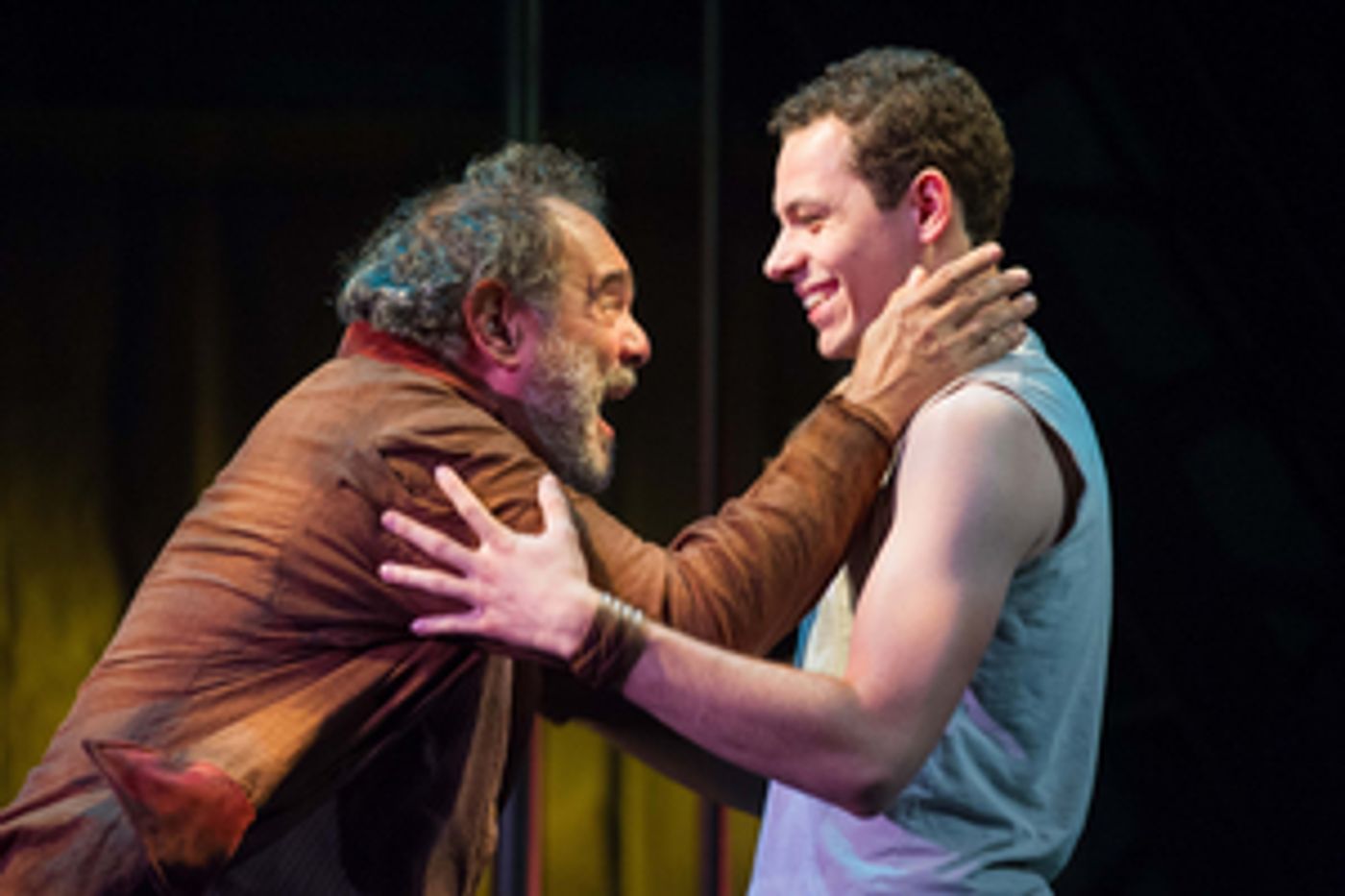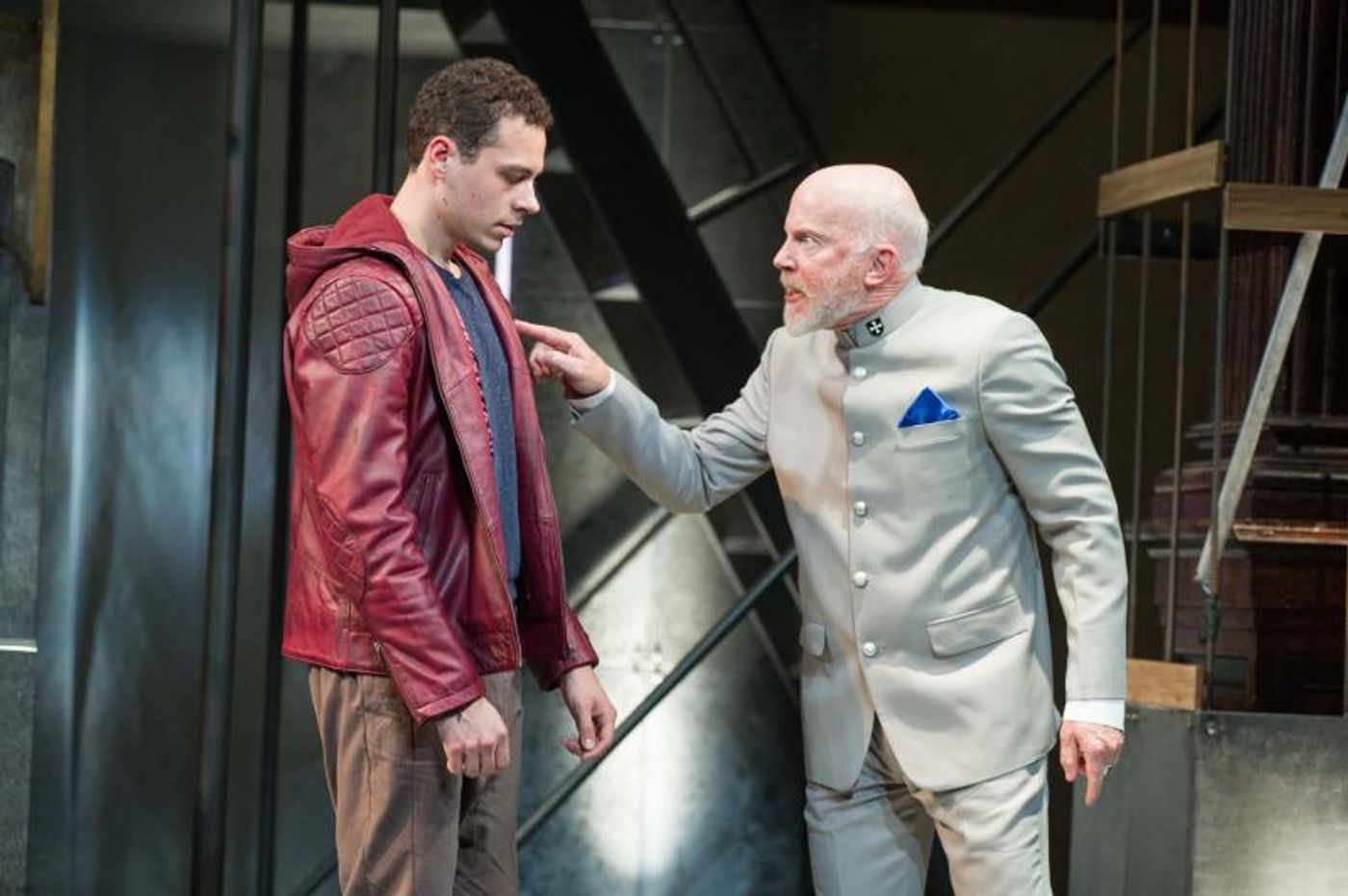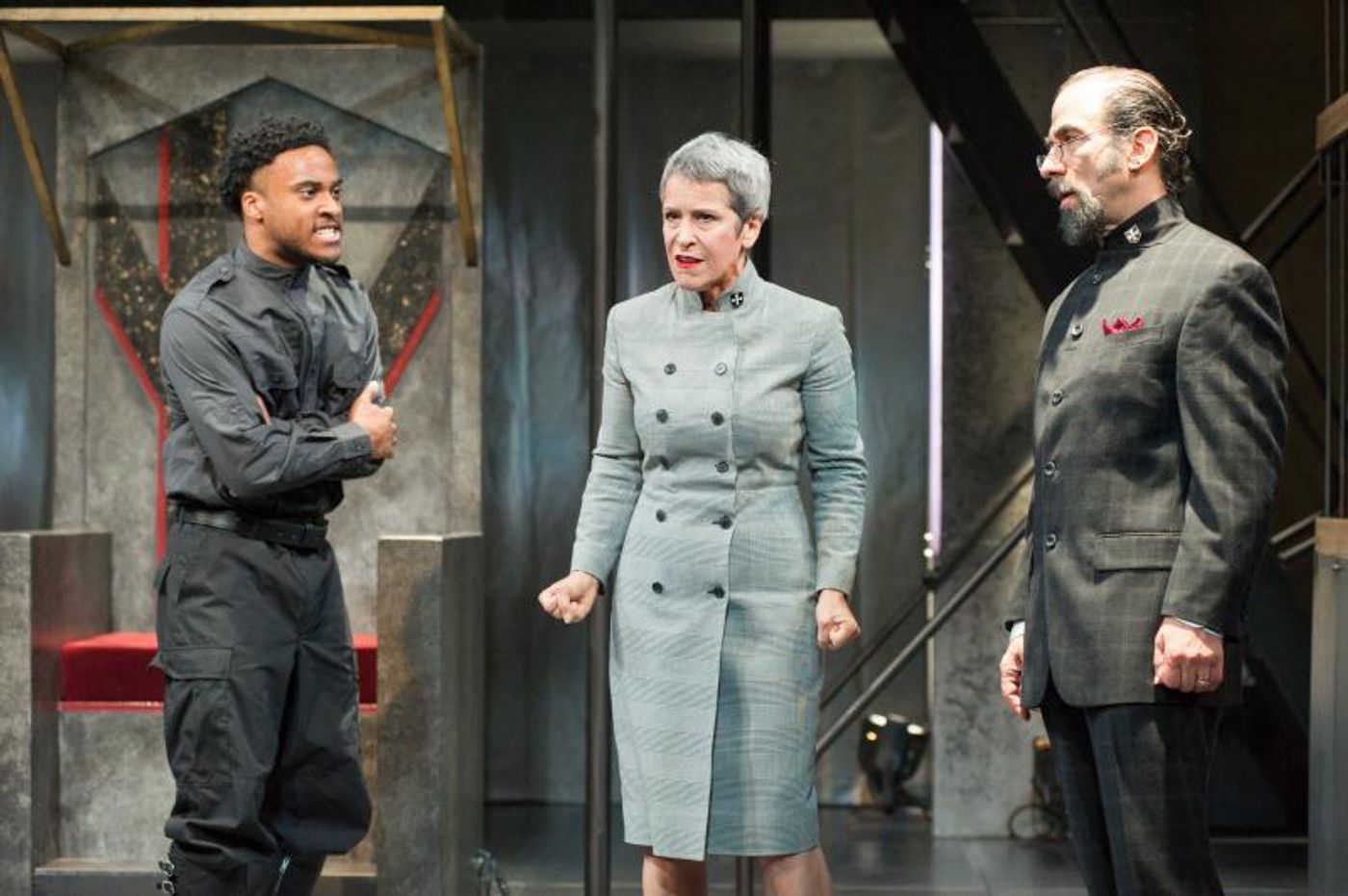Review: 1 HENRY IV at Folger Shakespeare Library

In many ways, 1 Henry IV is as much about the king's son as it is about the king's reign and the rebellion he faces, and about the struggles of family - the monarchy, it seems, only magnifies a conflict that is universal. Prince Hal, never comfortable with the expectations set upon him as the eldest son of a king, finds himself constantly compared to Henry Percy, who is everything his father wishes him to be. Under these burdens, Hal pulls away from his family, shirking his responsibilities in favor of joining a band of thieves, led by the disgraced Sir John Falstaff, a drunk braggart who takes the reluctant prince under his wing. But when Percy starts to defy the king and, alongside his allies in Wales, launches a rebellion against King Henry, everyone is forced to reconsider their place, their assumptions, and their loyalties.
Folger Theatre's 2019 Season opener deftly carries these themes, presenting the audience with a full view of these internalized conflicts. Rosa Joshi's production enchantingly revives this age-old tale of duty and family. With the help of dramaturg Michele Osherow, Joshi shows the audience that Henry's court and the Eastcheap underworld Hal escapes to are really more parallel structures with much more in common than either recognizes. Hal is not the only one torn between the two worlds; the audience is immersed in each, and needs to determine which - if either - is in fact more distasteful, and where true honor lies.

From the opening, the stage is impressive; although Scenic Designer Sara Ryung Clement's set pieces are fairly minimal, they're incredibly versatile and clever. Henry's throne (complete with an artful "IV") doubles as the main table in the Eastcheap tavern, making it the centerpiece of both worlds around which each set of characters gravitate. The minimalist, metallic set also helps set the mood, especially when combined with Jesse Belsky's excellent lighting design (most notable during the transitions and the sunrise at the start of the battle). The incorporation of platforms, firepoles, and ladders created a great physical space that kept the spirit of the show even more than a traditional setting would, and had the bonus of giving the actors a physical space that told their stories as much as their words. Likewise, Kathleen Geldard's costumes were modern, yet existed in and out of time in a way that maintained the authenticity of the play; I particularly liked the choice to use Mandarin collars on courtier suits as well as Hal's rebellious red leather jacket and Worcester's commanding red shoes.
As compelling as the set is, the cast, of course, is the main draw for this production; the story, though interesting, relies entirely on its characters. Peter Crook, as the titular character, portrays Henry as a king struggling to hold his family and kingdom together while warring with his own internal struggles; his opening soliloquy reveals a man who is focused on his role, but cannot open his mind to how others consider his thoughts and expectations. His heart is in the right place, but his countenance - harsh commands to his subjects, outright wishing his son were someone else - makes it clear that he is blind to his own limitations. Edward Gero's Falstaff is the perfect foil for Henry - he's boisterous and entertaining, presiding over his own counter-court of thieves. Gero perfectly captures Falstaff's charisma; even as you watch him repeatedly lie and cheat, you can't help but feel drawn to him. At the same time, it's impossible to miss the subtle tenderness he shows for Hal; under the bombast, Gero conveys a deep affection, and it is that bond that serves as a focal point for the show. Prince Hal is played by newcomer (to DC, anyway) Avery Whitted, whose portrayal of the reticent prince torn between living up to the expectations of his father and the comfortable mediocrity embraced by Falstaff gripped the audience's attention from the outset. It was gratifying to see him grow into his role as the Prince of Wales, and Whitted's Hal showed as much strength in quietly giving his younger brother the honor of handling the violent rebel, Douglas, as he did in epic his final battle with Percy.

Tyler Fauntleroy's hotheaded Harry "Hotspur" Percy was the perfect blend of competence and arrogance, and it was difficult to decide if you were rooting for him or against him. Fauntleroy's portrayal carried Percy to a role that cannot quite be described as villainous, despite his standing as the main agitator. Even as he railed against his own allies, there was something charming about the character that made you empathize with him. Likewise, Worcester, played by the enchanting Naomi Jacobson was equally fun to watch on stage, especially as she conspired to lead Percy into a battle that could have been easily avoided. Jacobson perfectly showed Worcester's iron will in a way that made the character fascinating to watch. Percy and Worcester's co-conspirators were equally as compelling; Sam Midwood's Douglas could have easily been a caricature, but was a genuinely frightening adversary. U. Jonathan Toppo's Northumberland was a fascinating contrast to Henry and Falstaff in how he related to his son, Percy; his Glendower provided yet another paternal angle, starkly different from the others in his balance of affection for his daughter and son-in-law, Mortimer, and shrewdness in planning for battle. Maboud Ebrahimzadeh's Mortimer was the reason within the rebellion, and the biggest disappointment was that his character was only briefly on stage. However, the scene in which he shares a brief, sweet moment as his wife - played by the charming and beautifully-voiced Jordan Lee - sings to him somehow still was an endearing segment in an already strong show.
The biggest standout moment, though, was the battle itself. Staging a battle is tricky, and finding an original or compelling angle can be difficult. And yet, Toppo (who, in addition to acting, also serves as the show's Fight Choreographer) and Alice Gosti (the production's Movement Director and Choreographer) delivered not only fabulous sword fights, but an absolutely stunning visual in the form of what it feels understating to call a dance battle. The two sides faced off on the stage with dance-like movements, but the intensity and synchronization was so sharp that it perfectly portrayed the intensity of a battle.
1 Henry IV isn't a particularly short play, and yet, as it drew to a close, I felt disappointed that we weren't continuing on to Part II. I wasn't quite ready to leave the world Joshi and her compelling cast had created, and I'll keep my fingers crossed that we'll have a chance to see the next installment sooner rather than later.
Folger Theatre's 1 Henry IV plays through October 13. Run time is two and a half hours with one fifteen-minute intermission. Information about tickets, special performances and talkbacks, and links to related texts can be found on the Folger Shakespeare Library website.
Photos courtesy of C. Stanley Photography.
Reader Reviews
Videos

